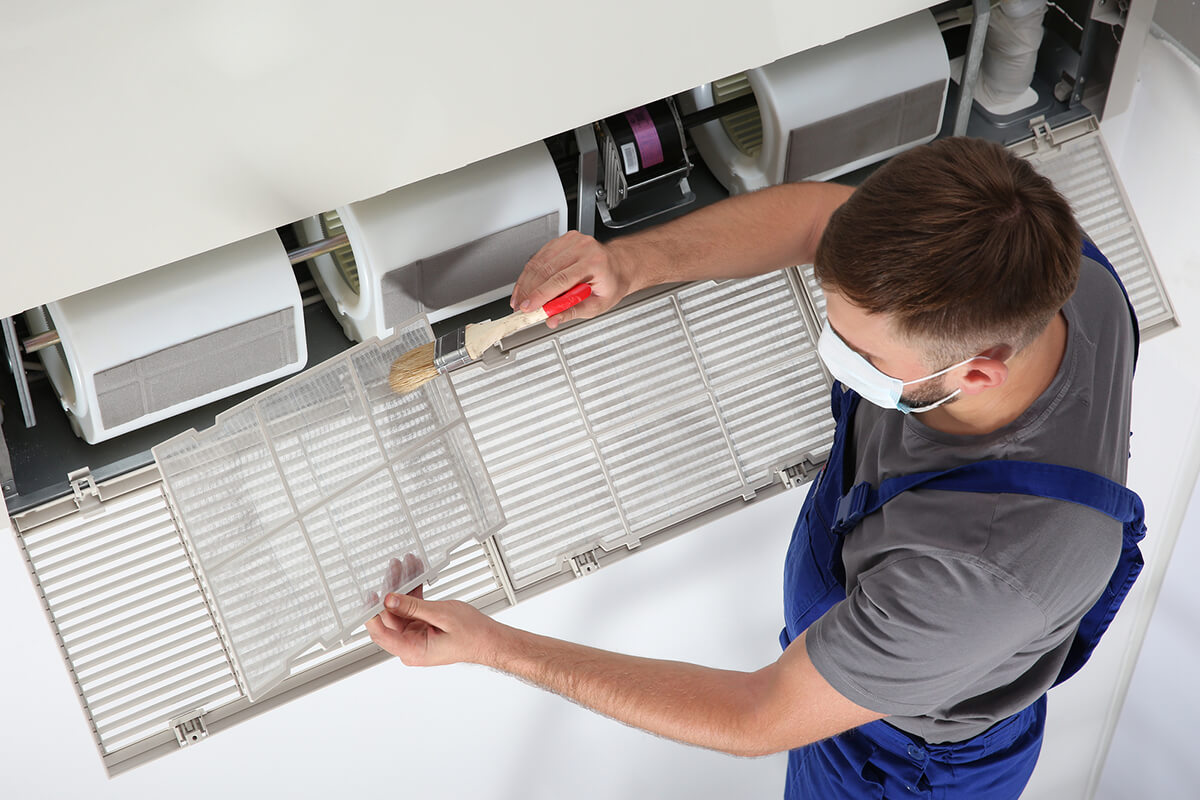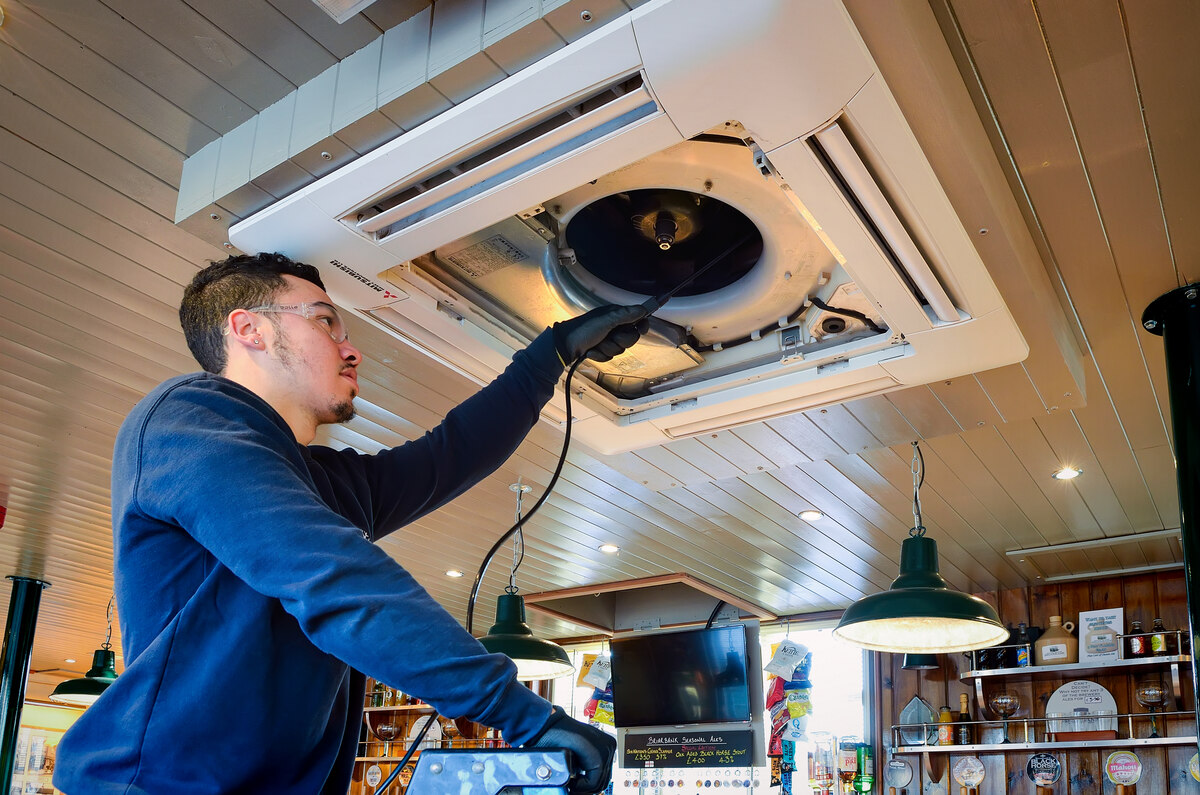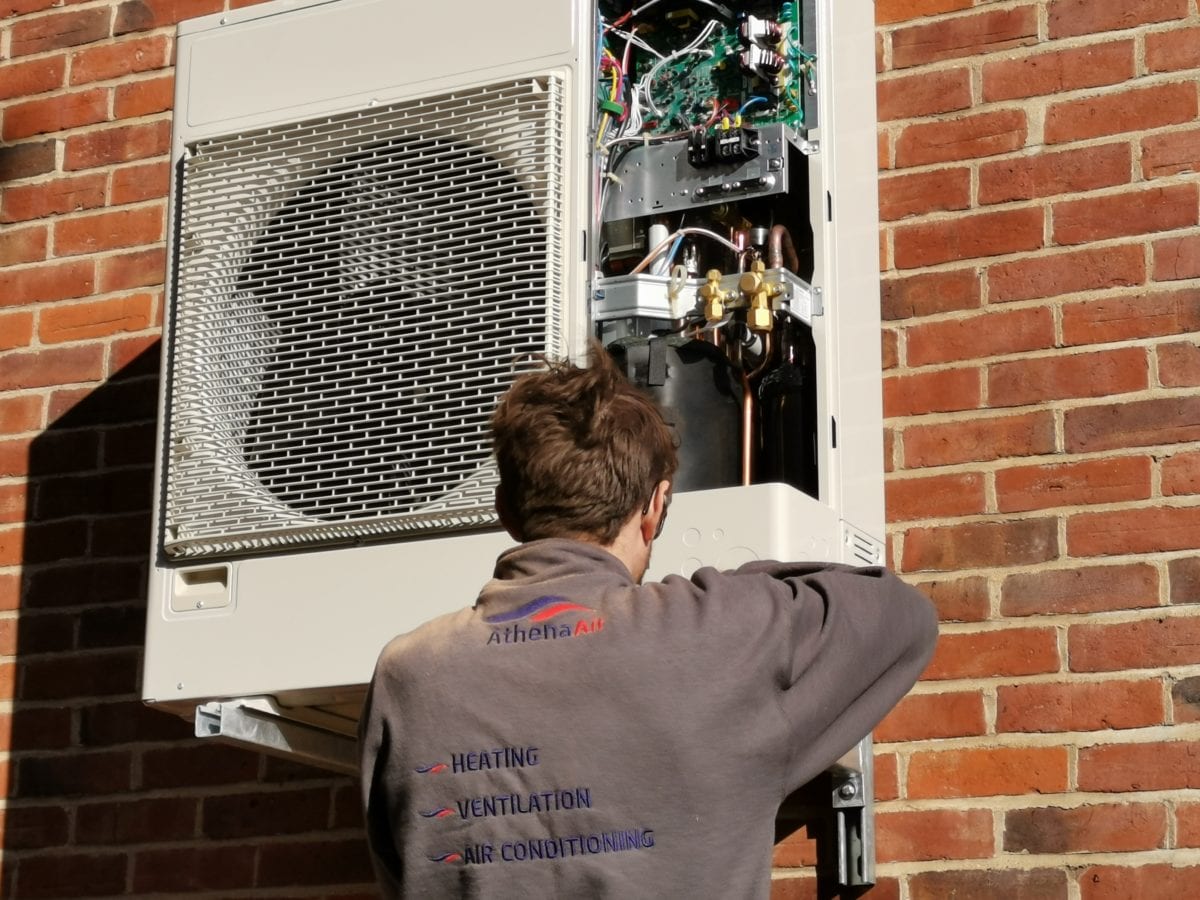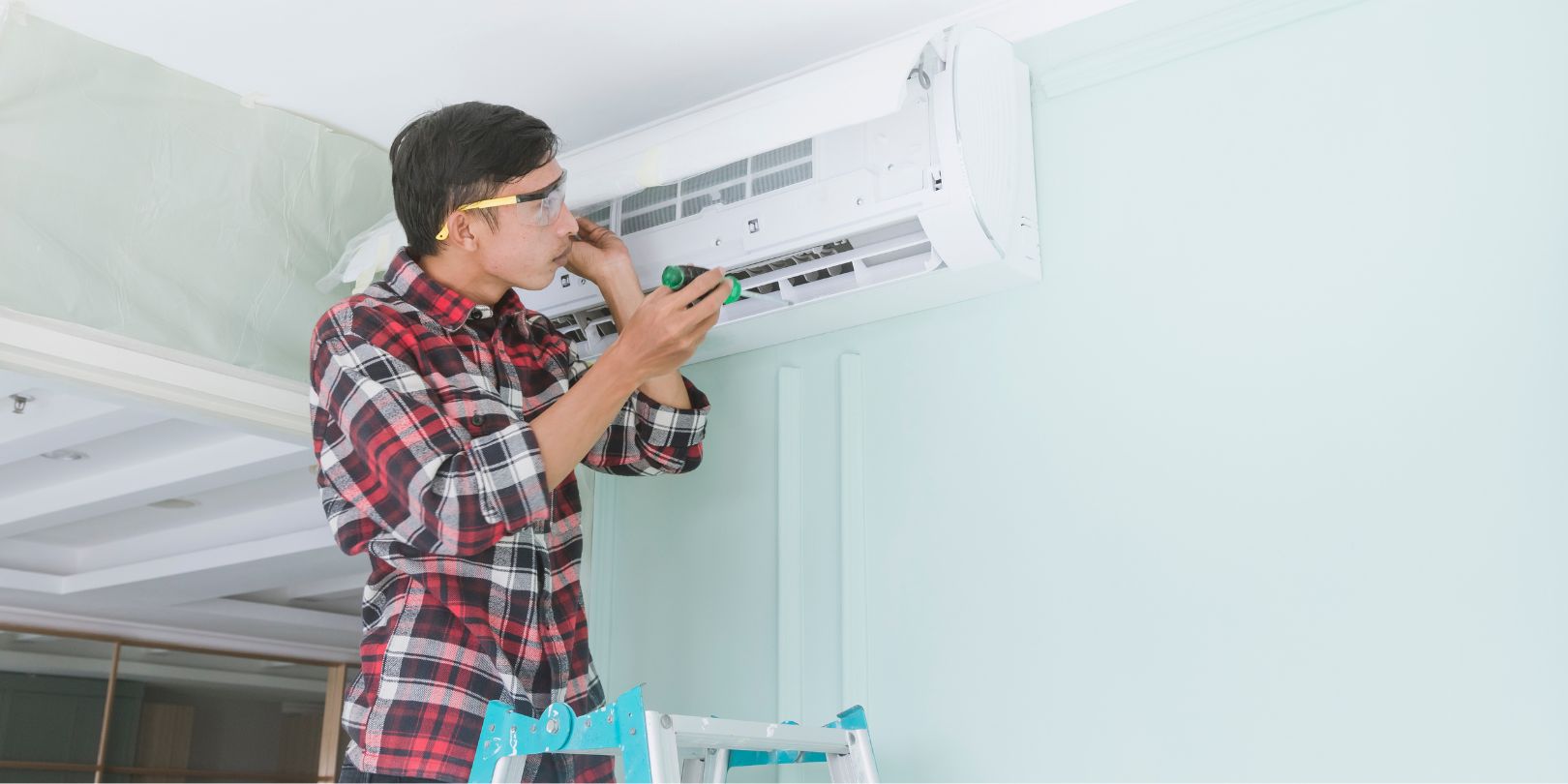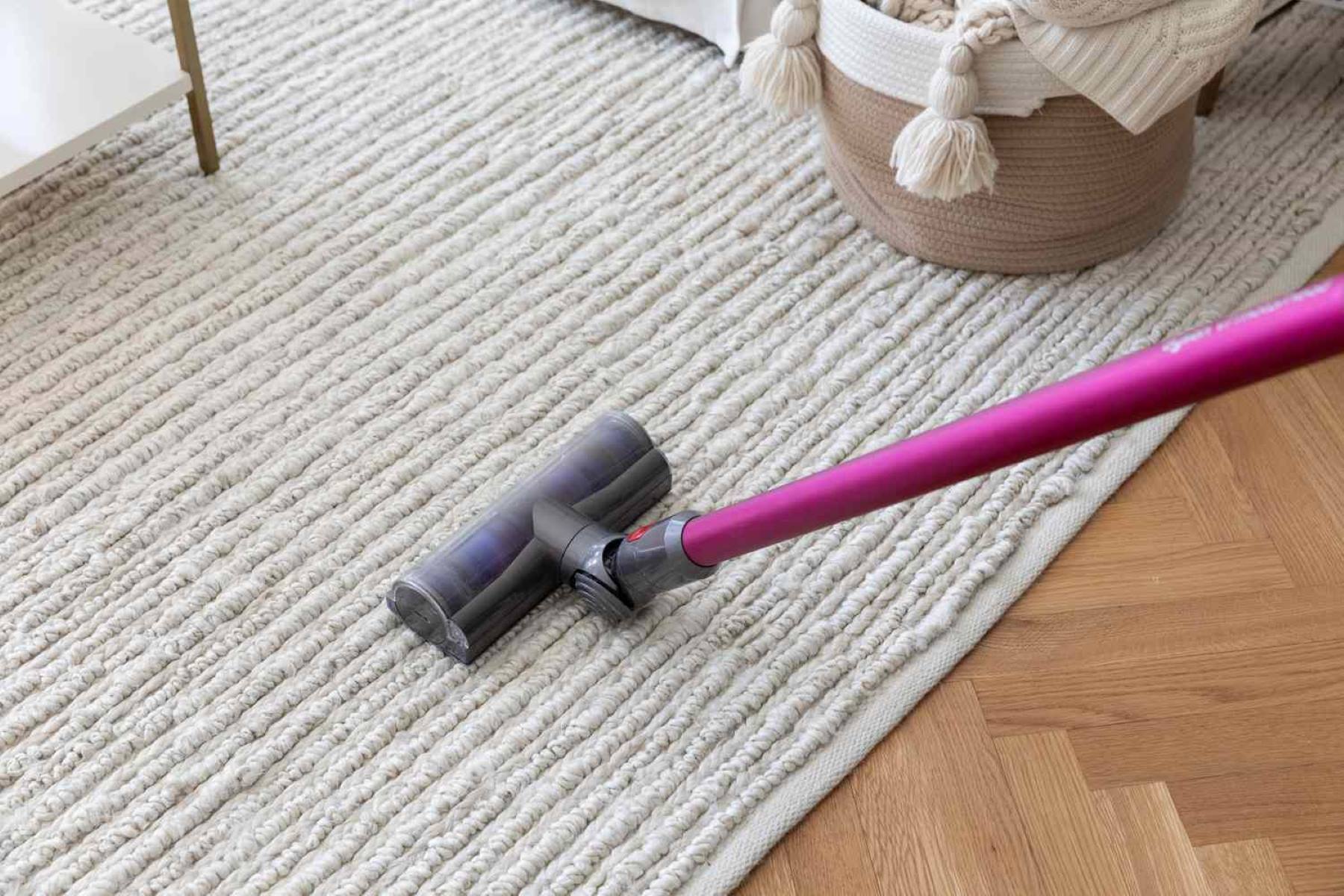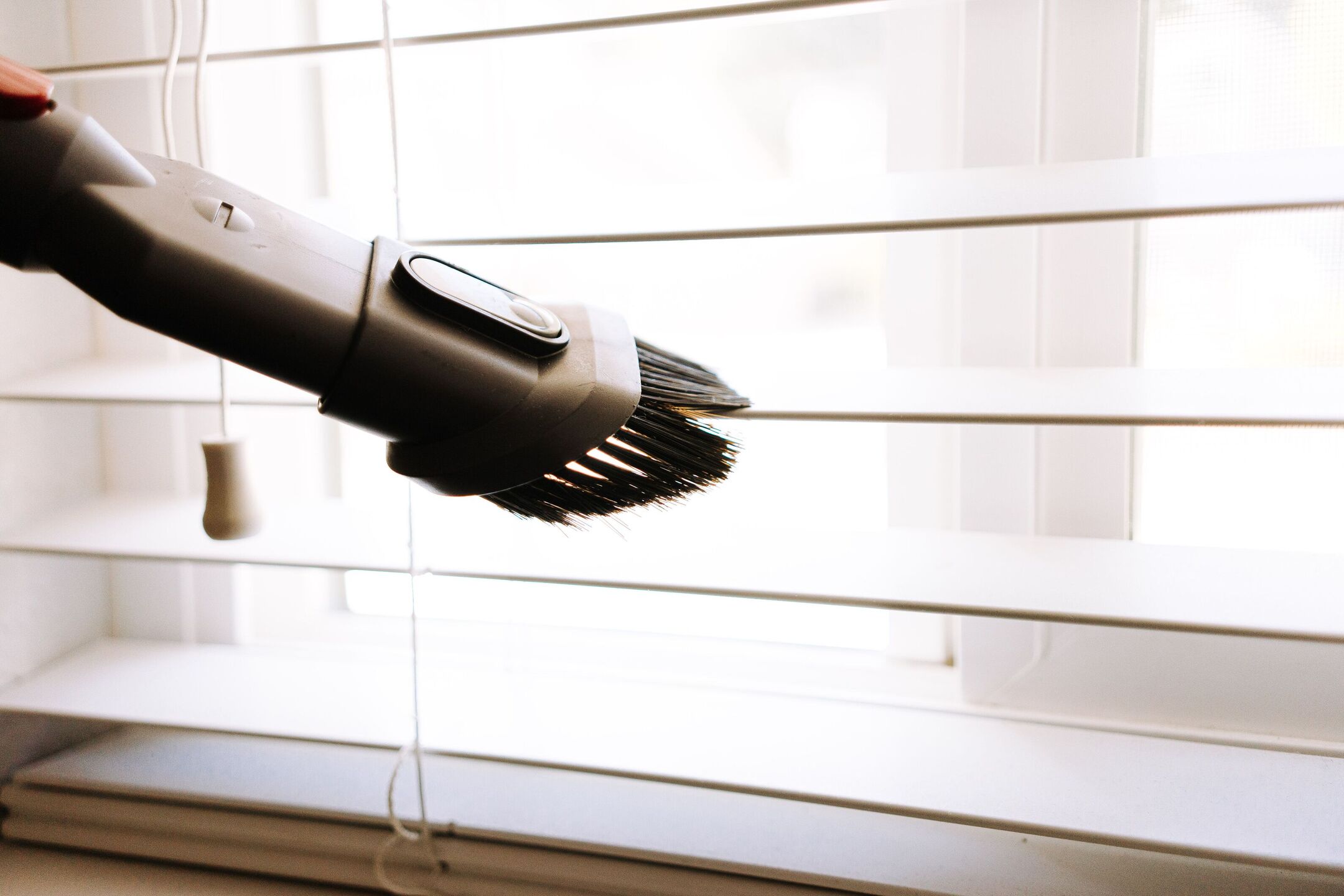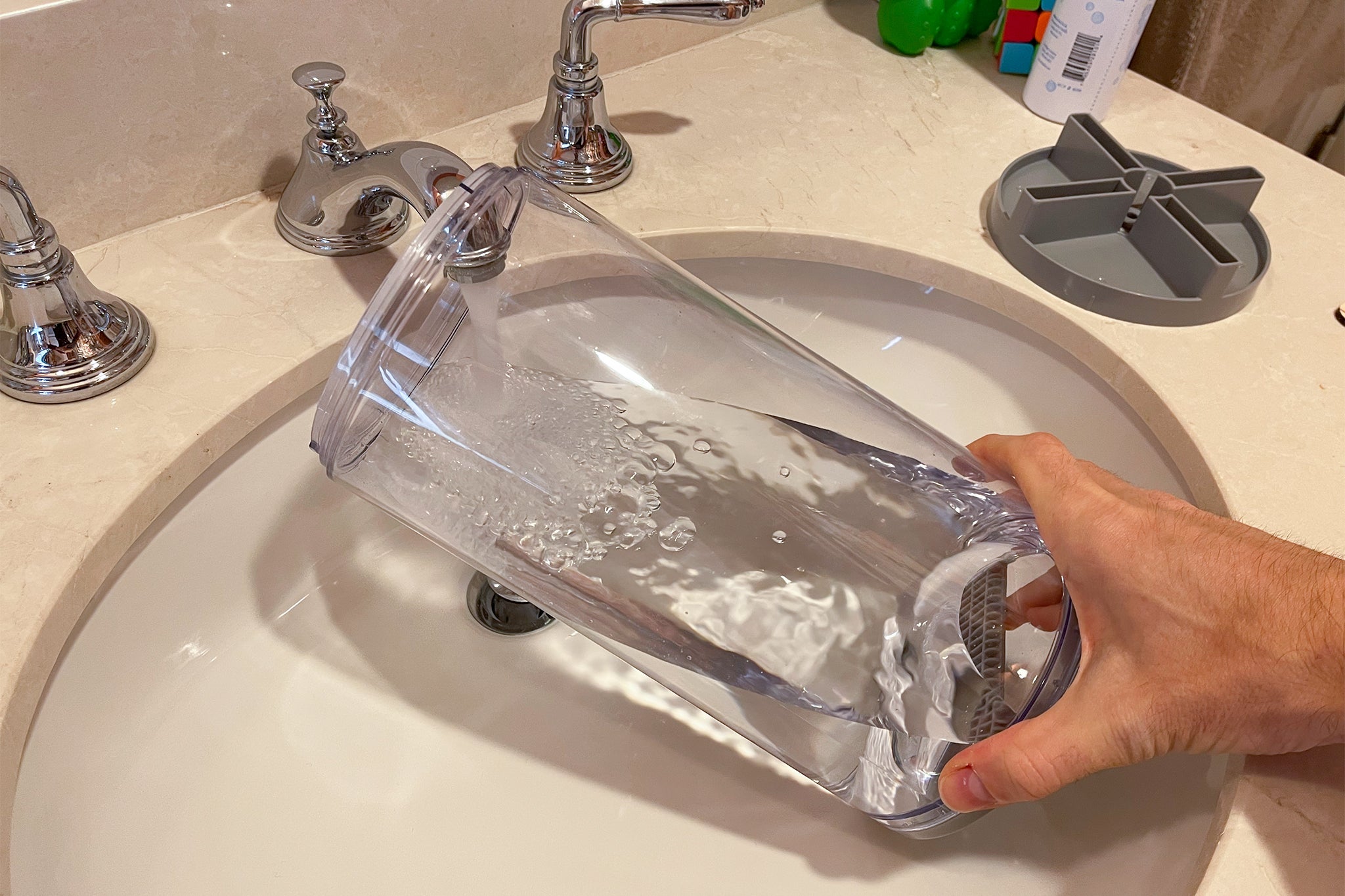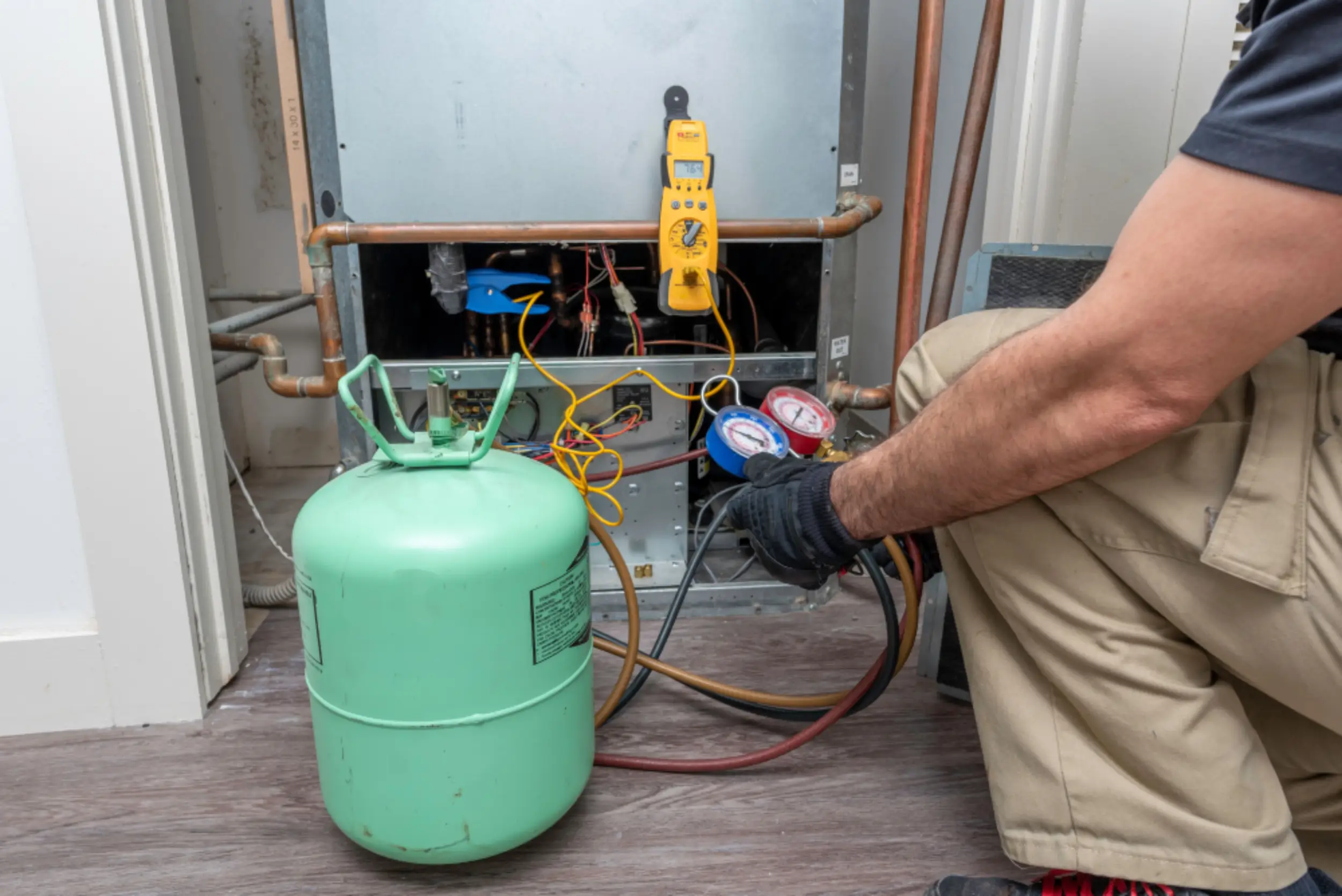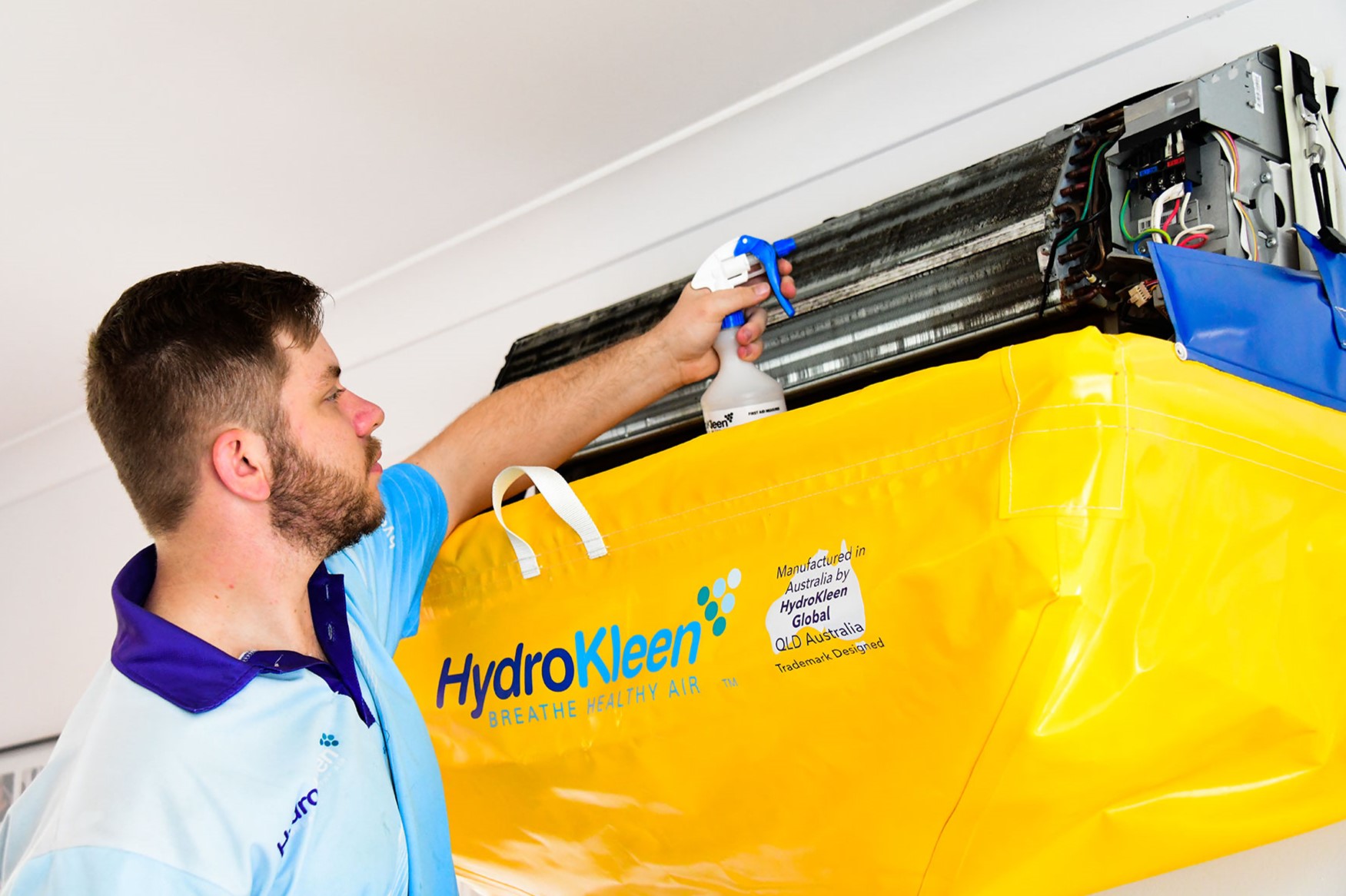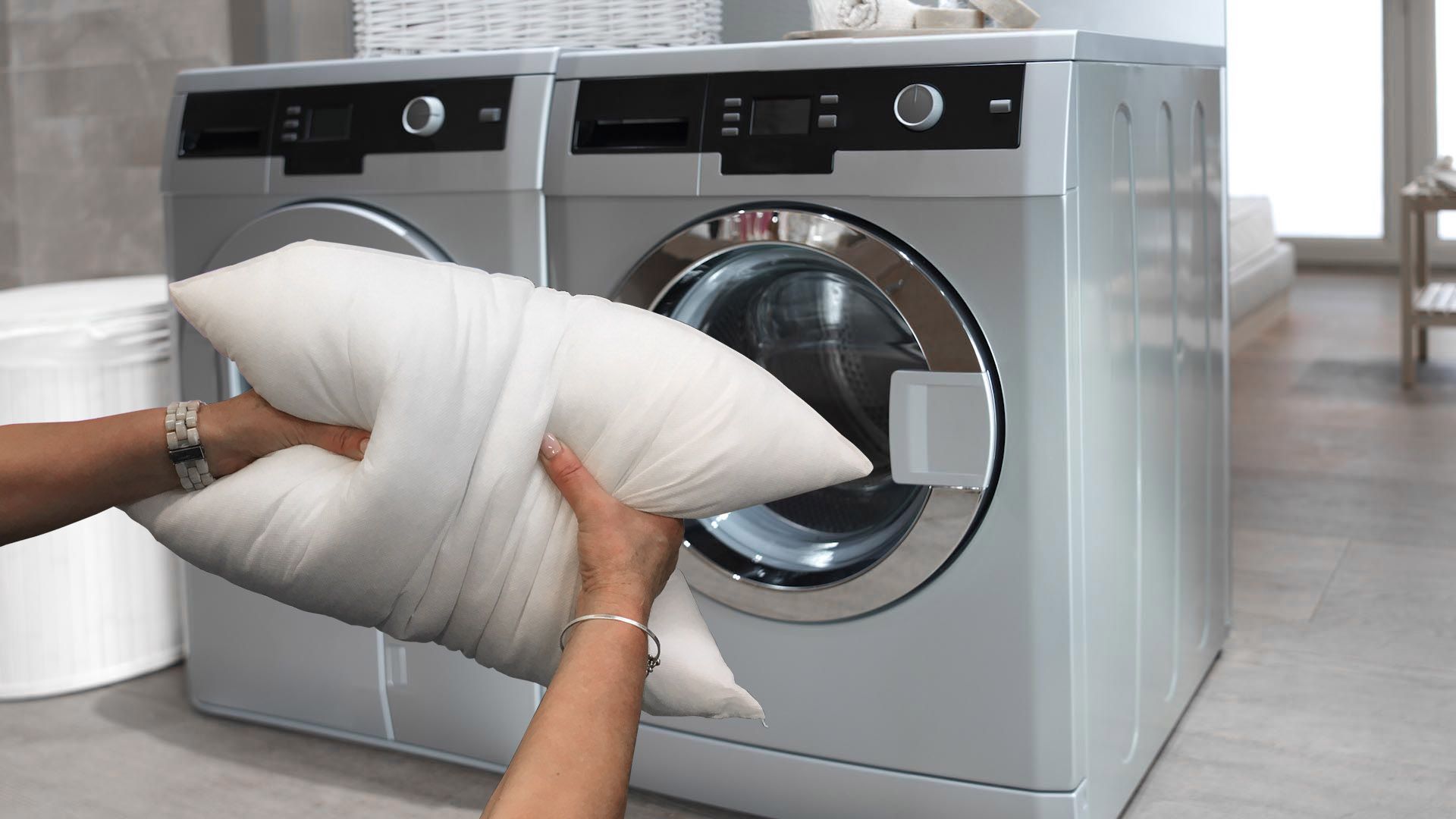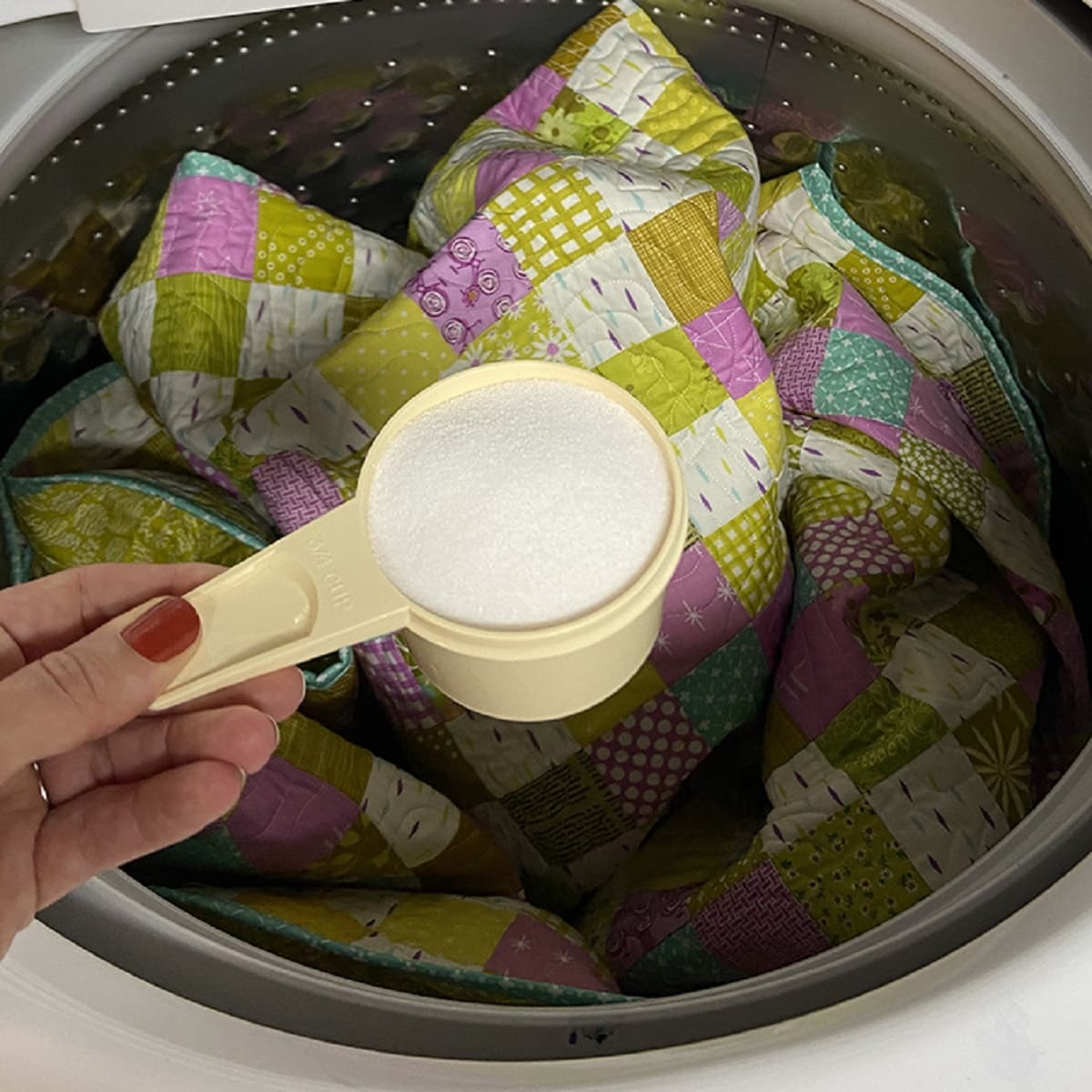Home>Home Maintenance>How Often Should You Service Your Air Conditioner
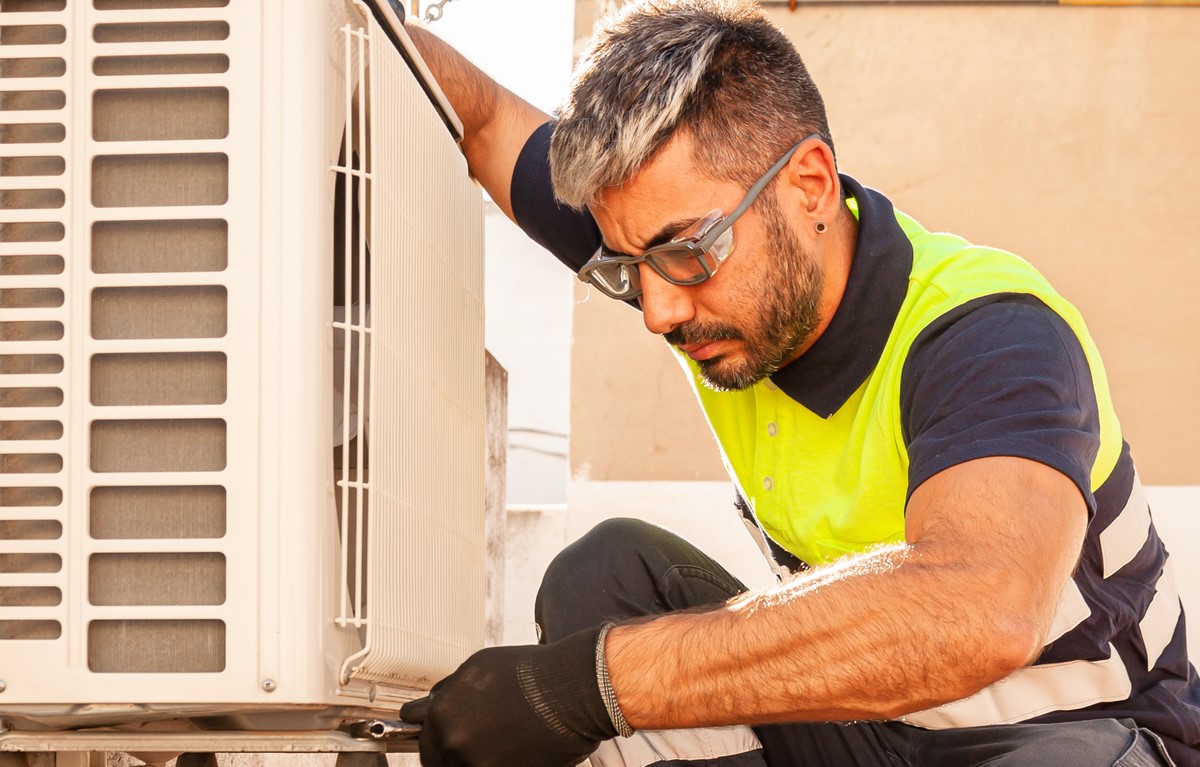

Home Maintenance
How Often Should You Service Your Air Conditioner
Modified: March 7, 2024
Discover the importance of regular home maintenance for your air conditioner. Learn how often you should service your air conditioner to ensure optimal performance and longevity.
(Many of the links in this article redirect to a specific reviewed product. Your purchase of these products through affiliate links helps to generate commission for Storables.com, at no extra cost. Learn more)
Introduction
Welcome to our comprehensive guide on how often you should service your air conditioner. Regular maintenance is essential to ensure that your air conditioner operates efficiently, prolong its lifespan, and maintain a comfortable indoor environment. Without regular servicing, your air conditioner may experience a decline in performance, higher energy consumption, and potential breakdowns.
But how often should you service your air conditioner? There is no one-size-fits-all answer to this question as various factors contribute to the frequency of servicing. In this article, we will explore the key factors to consider, manufacturer recommendations, signs that your air conditioner needs servicing, and the benefits of regular maintenance.
By the end of this guide, you will have a clear understanding of how often you should service your air conditioner and the steps you can take to maintain its optimal performance. Let’s dive in!
Key Takeaways:
- Regular servicing of your air conditioner is crucial to keep it running efficiently, saving you money and preventing unexpected breakdowns. Follow manufacturer recommendations and be attentive to signs that your unit needs servicing.
- DIY maintenance tasks like cleaning filters and monitoring the thermostat can help maintain your air conditioner, but professional servicing is still essential for comprehensive maintenance and addressing complex issues.
Factors to Consider
When it comes to deciding how often to service your air conditioner, several factors should be taken into consideration. These factors can help determine the optimal frequency and ensure that your unit remains in top-notch condition. Here are the key factors to consider:
- Age of the Air Conditioner: The age of your air conditioner plays a significant role in determining the frequency of servicing. Older units generally require more frequent maintenance to compensate for wear and tear.
- Type of Air Conditioner: Different types of air conditioners, such as split systems, window units, or central air conditioning systems, may have varying maintenance requirements. Consult the manufacturer’s guidelines or seek professional advice to determine the specific needs of your unit.
- Usage and Climate: The usage and climate conditions also impact how often your air conditioner should be serviced. If you live in a region with hot and humid summers, your air conditioner will likely be in use for more extended periods, necessitating more frequent maintenance.
- Environmental Factors: Environmental factors such as dust, pollen, and pet hair can build up in your air conditioner’s filters and coils, affecting its performance. If you live in an area with high levels of airborne particles, regular servicing may be required more frequently.
- Warranty Requirements: If your air conditioner is covered under a warranty, it is essential to adhere to the servicing schedule outlined in the warranty terms. Failure to do so may void the warranty and leave you responsible for any repairs or replacements.
- Previous Servicing History: Consider the maintenance history of your air conditioner. If it has been neglected or hasn’t been serviced in a long time, it may require more frequent maintenance initially to restore optimal functioning.
By taking these factors into account, you can gain insight into how often your air conditioner should be serviced. However, it is always recommended to consult with a professional HVAC technician who can assess your specific situation and provide expert advice.
Manufacturer Recommendations
When it comes to servicing your air conditioner, it’s important to consider the manufacturer’s recommendations. Manufacturers typically provide guidelines on how often the unit should be serviced to ensure optimal performance and longevity. These recommendations can be found in the user manual or on the manufacturer’s website.
The manufacturer’s recommendations take into account the specific design, components, and maintenance needs of their air conditioning units. Following these recommendations can help prevent potential issues and ensure that your warranty remains valid. Here are some common manufacturer recommendations:
- Annual Servicing: Many manufacturers suggest scheduling a professional maintenance service on an annual basis. This typically involves a thorough inspection, cleaning of the filters and coils, lubrication of moving parts, and checking the overall performance of the unit.
- Pre-Season Check-ups: Some manufacturers recommend having your air conditioner serviced twice a year – once before the cooling season (spring) and once before the heating season (fall). These pre-season check-ups help identify and address any potential issues before the system is heavily used.
- Filter Maintenance: Cleaning or replacing the air filters regularly is a common recommendation from manufacturers. Clogged or dirty filters can restrict airflow and reduce the unit’s efficiency. Depending on the type of filter used, it may need to be cleaned or replaced monthly or every few months.
- Coil Cleaning: Manufacturers often advise cleaning the evaporator and condenser coils to remove dirt and debris buildup. This ensures that the coils can efficiently absorb and release heat, improving the overall performance of the air conditioner.
- Condensate Drainage: Manufacturers may recommend checking and clearing the condensate drain regularly to prevent clogs and water leaks. A clogged drain can lead to water damage and impact the unit’s functionality.
Remember, these are general recommendations, and your specific unit may have unique requirements. Always refer to the manufacturer’s guidelines for your particular air conditioner model.
Following the manufacturer’s recommendations not only helps keep your air conditioner functioning optimally but also allows you to take advantage of any warranty coverage. It’s essential to maintain accurate records of servicing activities to provide proof of maintenance if needed.
Climate and Usage
The climate in which you live and how frequently you use your air conditioner can have a significant impact on its maintenance needs. Let’s explore how climate and usage patterns influence the frequency of air conditioner servicing.
Hot and Humid Climate: If you reside in a region with hot and humid summers, your air conditioner is likely to be running for longer periods to keep your indoor environment cool and comfortable. The increased usage puts more strain on the system, which may require more frequent maintenance. Regular servicing is crucial to ensure that the unit can handle the demands of the climate and continue operating efficiently.
Extreme Weather Conditions: If you experience extreme weather conditions, such as scorching heatwaves or frigid winters, your air conditioner may be subjected to more strain and wear and tear. It’s important to have your unit serviced regularly to address any issues that may arise due to the extreme conditions and to ensure optimal performance when you need it most.
Seasonal Usage: If you primarily use your air conditioner during certain seasons, such as summer, you may need to schedule maintenance before and after that period of heavy usage. This allows for a pre-season inspection to address any potential problems and a post-season tune-up to ensure the unit is in good condition for the following year.
Frequent Usage: If you use your air conditioner consistently throughout the year, you may need more frequent servicing to keep up with the wear and tear. Regular maintenance can help identify and address any issues early on, preventing them from escalating and potentially leading to a breakdown.
In addition to climate and usage patterns, it’s important to be mindful of any specific factors that may affect your air conditioner’s performance, such as exposure to dust, pollution, or allergens. These factors may require more frequent filter replacements or cleaning to maintain optimal indoor air quality.
Overall, consider your climate and how often you use your air conditioner when determining the frequency of servicing. If you have any doubts or uncertainties, consulting with a professional HVAC technician can provide valuable guidance tailored to your specific situation.
Signs That Your Air Conditioner Needs Service
Regular servicing is crucial for maintaining the optimal performance and longevity of your air conditioner. However, there are certain signs that indicate your unit may require immediate attention and servicing. Recognizing these signs can help you address potential issues before they escalate into major problems. Here are some common signs that your air conditioner needs service:
- Insufficient Cooling: If you notice that your air conditioner is not cooling your space as effectively as it used to, it may be a sign of a problem. Reduced airflow, refrigerant leaks, or compressor issues can all result in insufficient cooling. A professional technician can diagnose the issue and restore the unit’s cooling performance.
- Strange Noises: Unusual sounds coming from your air conditioner, such as grinding, rattling, or squealing noises, can indicate mechanical issues or worn-out components. Ignoring these noises may lead to further damage. It’s best to have a professional inspect and repair the unit promptly.
- Inconsistent Temperatures: If you notice significant temperature fluctuations throughout your home or different rooms, it may be an indication of an airflow problem or issues with the thermostat. A professional can identify the underlying cause and restore consistent temperatures throughout your space.
- Unpleasant Odors: Foul odors emitting from your air conditioner can be a sign of mold or other microbial growth within the unit. These odors not only compromise indoor air quality but can also pose health risks. It’s important to have the unit inspected, cleaned, and treated to eliminate the source of the odor.
- Increased Energy Consumption: If you notice a sudden spike in your energy bills without any changes in usage patterns, it may indicate that your air conditioner is not operating efficiently. Dirty filters, clogged coils, or other issues can cause the unit to consume more energy to cool your space. Regular servicing can help improve energy efficiency and reduce your utility costs.
- Frequent Breakdowns: If your air conditioner frequently breaks down or requires repairs, it’s a clear sign that maintenance is needed. Ongoing issues can indicate underlying problems that, if left unaddressed, may lead to costly repairs or even the need for a replacement unit.
Remember, these signs may vary depending on the specific issues your air conditioner may be facing. It’s essential to pay attention to any changes or abnormalities in the unit’s performance and seek professional assistance to diagnose and resolve the problem.
By addressing these signs promptly and scheduling regular maintenance, you can ensure that your air conditioner continues to operate efficiently, provide optimal comfort, and avoid unexpected breakdowns.
It is recommended to service your air conditioner at least once a year to ensure it is running efficiently and to catch any potential issues early on. Regular maintenance can help extend the lifespan of your unit and improve its performance.
Read more: How Often Should You Service Your AC
Regular Maintenance Checklist
Maintaining your air conditioner regularly is key to its optimal performance and longevity. By following a regular maintenance checklist, you can identify and address any potential issues before they become major problems. Here is a comprehensive checklist to guide you through the maintenance process:
- Inspect and Clean the Air Filters: Check the air filters regularly and clean or replace them as needed. Dirty filters can restrict airflow and reduce the unit’s efficiency.
- Clean the Coils: Clean the evaporator and condenser coils to remove dirt and debris buildup. This helps improve the cooling performance and energy efficiency of the unit.
- Check and Clean the Condensate Drain: Clear the condensate drain to prevent clogs and water leaks. A clogged drain can cause water damage and affect the unit’s functionality.
- Inspect and Lubricate Moving Parts: Check the motor, fan, and other moving parts for any signs of wear and tear. Lubricate them as recommended by the manufacturer to ensure smooth operation.
- Inspect and Clean the Blower Fan: Examine the blower fan for dust and debris and clean it if necessary. A clean fan improves airflow and overall air circulation.
- Check the Refrigerant Level: Monitor the refrigerant levels to ensure they are within the recommended range. Low refrigerant levels may indicate a leak and can lead to reduced cooling performance.
- Inspect Electrical Connections: Inspect the electrical connections and tighten any loose connections. Faulty electrical connections can pose a safety hazard and affect the unit’s performance.
- Calibrate the Thermostat: Check the accuracy of the thermostat and calibrate it if needed. An inaccurate thermostat can result in inconsistent temperatures and unnecessary energy consumption.
- Inspect and Clean the Outdoor Unit: Remove any debris, leaves, or vegetation around the outdoor unit. Ensure proper airflow and prevent obstructions.
- Test the Unit: Once you have completed the maintenance tasks, run a test to ensure the unit is operating smoothly and efficiently.
Remember, it’s important to follow the manufacturer’s guidelines and consult with a professional HVAC technician for any specific maintenance requirements or if you are unfamiliar with any of the tasks. Regular maintenance should be performed at least once a year, ideally before the start of the cooling season, to ensure optimal performance.
By diligently following this maintenance checklist, you can keep your air conditioner in excellent condition, maximize its efficiency, and extend its lifespan.
Benefits of Regular Servicing
Regular servicing of your air conditioner offers numerous benefits that contribute to its optimal performance, energy efficiency, and overall longevity. Here are some key advantages of prioritizing regular servicing:
- Enhanced Energy Efficiency: A well-maintained air conditioner operates more efficiently, reducing energy consumption and utility costs. Regular servicing helps maintain clean filters, clear coils, and lubricated components to ensure proper airflow and improve overall energy efficiency.
- Improved Cooling Performance: Regular servicing ensures that all components of your air conditioner are in optimal condition, allowing it to deliver consistent and efficient cooling throughout your space. It helps prevent issues like insufficient cooling or temperature inconsistencies.
- Extended Lifespan: Just as regular servicing helps your car last longer, it can significantly extend the lifespan of your air conditioner. Routine maintenance tasks such as cleaning coils, lubricating moving parts, and checking electrical connections help reduce wear and tear, keeping the unit functional for a longer duration.
- Prevention of Major Breakdowns: Regular servicing allows for the early detection and resolution of minor issues before they escalate into significant problems. By addressing these issues promptly, you can prevent unexpected breakdowns and costly repairs.
- Cost Savings: Investing in regular servicing can save you money in the long run. By ensuring the efficient operation of your air conditioner, it reduces the need for extensive repairs, replacements, or even premature unit replacements, which can all be costly undertakings.
- Improved Indoor Air Quality: Clean air filters and coils, along with proper maintenance, help maintain good indoor air quality. Regular servicing prevents the buildup of dust, allergens, and contaminants, ensuring that the air circulating in your space is clean and healthy.
- Manufacturer Warranty Compliance: Following the recommended maintenance schedule and keeping accurate records of servicing activities can help ensure that your air conditioner remains under warranty coverage. Failure to comply with warranty requirements may result in the voiding of your warranty.
Remember, regular servicing should be performed by a qualified HVAC technician who can thoroughly assess your air conditioner, identify any underlying issues, and provide appropriate solutions. They have the necessary expertise and tools to conduct the servicing safely and effectively.
By prioritizing regular servicing, you can enjoy these benefits and have peace of mind knowing that your air conditioner is operating at its best, providing you with optimal comfort and energy efficiency.
DIY Maintenance Tips
While it’s recommended to have a professional HVAC technician perform regular servicing on your air conditioner, there are certain DIY maintenance tasks that you can undertake to keep your unit in good condition. Here are some DIY maintenance tips to help you maintain your air conditioner:
- Clean or Replace Air Filters: Check the air filters regularly and clean or replace them as needed. This helps maintain optimum airflow and prevents contaminants from circulating in your home.
- Clear the Area around the Outdoor Unit: Remove any debris, leaves, or vegetation that may obstruct the outdoor unit. This ensures proper airflow and prevents potential damage to the unit.
- Clean the Coils: Use a soft brush or vacuum cleaner to gently clean the evaporator and condenser coils. This removes dirt and debris buildup, which can impede heat transfer and reduce cooling performance.
- Check and Clear the Condensate Drain: Regularly inspect the condensate drain for any clogs or blockages. Use a mixture of water and bleach to flush the drain and prevent the buildup of mold or algae.
- Inspect and Clean the Fan Blades: Examine the fan blades for any dirt or debris and clean them if necessary. Dirty fan blades can affect the unit’s airflow and cooling efficiency.
- Monitor the Thermostat: Regularly check the accuracy of your thermostat to ensure proper temperature control. Calibrate or replace the thermostat if it is not functioning correctly.
- Keep Vents and Registers Clean: Ensure that vents and registers are free from dust and obstructions. This maximizes airflow and enables efficient distribution of cool air throughout your space.
- Listen for Unusual Sounds: Pay attention to any strange or unusual sounds coming from your air conditioner. If you notice any, turn off the unit and seek professional assistance to diagnose and resolve the issue.
- Monitor Energy Consumption: Keep an eye on your energy bills and look for any sudden spikes in energy consumption. Increased energy usage could indicate a problem with your air conditioner’s efficiency.
While these DIY maintenance tips can help in maintaining your air conditioner’s performance, it’s essential to remember that professional servicing is still necessary to ensure comprehensive maintenance and to address any potential issues that may require technical expertise.
By incorporating these DIY maintenance practices into your routine, you can contribute to the optimal functioning and efficiency of your air conditioner and help prolong its lifespan.
Conclusion
Regular servicing of your air conditioner is essential for optimal performance, energy efficiency, and prolonging its lifespan. By considering factors such as the age of the unit, manufacturer recommendations, climate, and usage, you can determine how often your air conditioner should be serviced.
Following manufacturer recommendations, which often include annual servicing and pre-season check-ups, helps ensure that your unit remains in good condition and that any potential issues are addressed before they become major problems.
Be attentive to signs that your air conditioner needs servicing, such as insufficient cooling, strange noises, inconsistent temperatures, unpleasant odors, increased energy consumption, or frequent breakdowns. Promptly addressing these signs can prevent further damage and costly repairs.
Implementing a regular maintenance checklist that includes tasks such as inspecting and cleaning filters, coils, and fan blades, as well as checking electrical connections and calibrating the thermostat, will contribute to the efficient and reliable operation of your air conditioner.
The benefits of regular servicing include enhanced energy efficiency, improved cooling performance, extended lifespan, prevention of major breakdowns, cost savings, improved indoor air quality, and compliance with manufacturer warranties.
While DIY maintenance tasks like cleaning air filters, clearing the outdoor unit area, and monitoring the thermostat are helpful, it is still crucial to rely on professional HVAC technicians for comprehensive servicing and the resolution of complex issues.
In conclusion, prioritizing regular servicing and maintenance of your air conditioner is the key to enjoying consistent comfort, energy efficiency, and cost savings. By taking a proactive approach to the care of your air conditioner, you can ensure its optimal functioning and increase its lifespan, providing you with years of reliable cooling and comfort.
Frequently Asked Questions about How Often Should You Service Your Air Conditioner
Was this page helpful?
At Storables.com, we guarantee accurate and reliable information. Our content, validated by Expert Board Contributors, is crafted following stringent Editorial Policies. We're committed to providing you with well-researched, expert-backed insights for all your informational needs.
